I do not read advertisements. I would spend all of my time wanting things
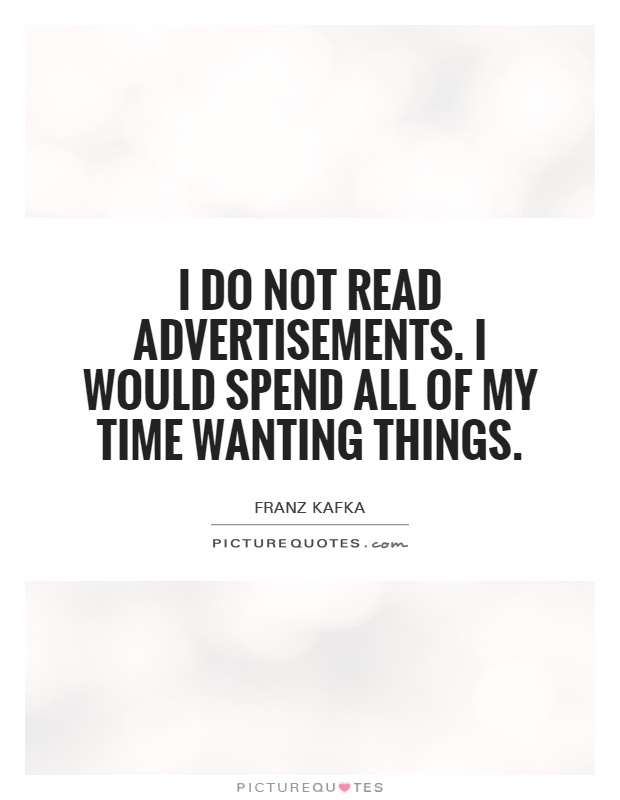
I do not read advertisements. I would spend all of my time wanting things
Franz Kafka, the renowned Czech writer known for his surreal and existential works, had a unique perspective on consumerism and the power of advertising. In his statement, "I do not read advertisements. I would spend all of my time wanting things," Kafka reveals a deep understanding of the human psyche and the insidious nature of marketing tactics.Kafka's aversion to advertisements can be seen as a rejection of the materialistic values that dominate modern society. He understood that advertising is designed to create desire and manipulate our emotions in order to sell products. By refusing to engage with advertisements, Kafka was able to resist the constant bombardment of messages telling him what he should want and need.
Kafka's statement also reflects his belief in the importance of self-awareness and introspection. By choosing not to read advertisements, Kafka was able to maintain a sense of autonomy and control over his own desires. He recognized that constantly exposing himself to advertising would only serve to distract him from more meaningful pursuits and lead him down a path of endless consumption.
Furthermore, Kafka's statement can be interpreted as a critique of the capitalist system and its emphasis on material wealth. In a society driven by consumerism, it is easy to become caught up in a cycle of wanting and acquiring more and more things. Kafka's refusal to participate in this cycle can be seen as a form of resistance against the commodification of human desires.
Overall, Kafka's statement "I do not read advertisements. I would spend all of my time wanting things" reveals his deep insight into the ways in which advertising shapes our desires and influences our behavior. By choosing to opt out of this system, Kafka was able to maintain a sense of independence and authenticity in a world that is constantly trying to sell us something.
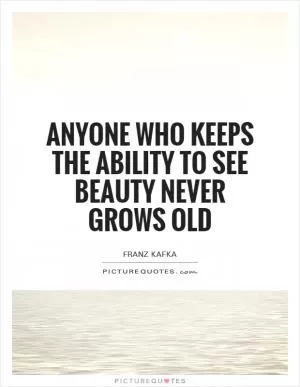
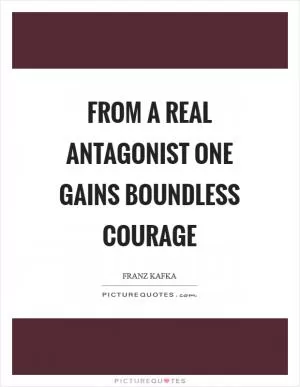


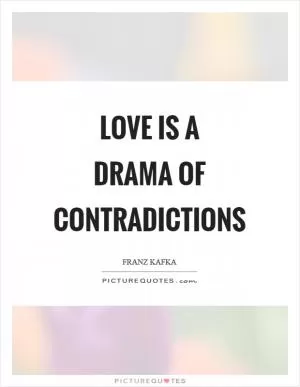

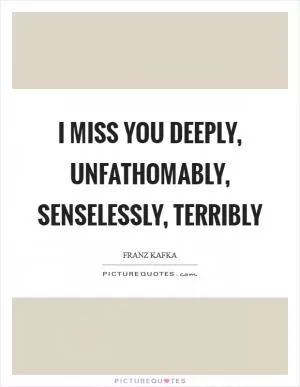
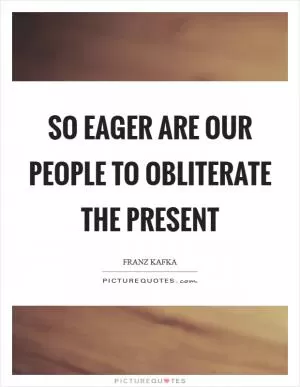

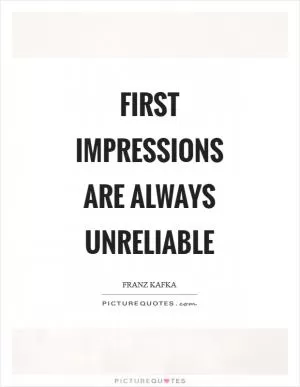

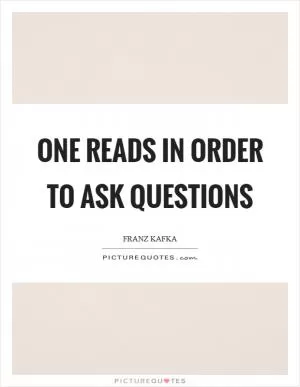
 Friendship Quotes
Friendship Quotes Love Quotes
Love Quotes Life Quotes
Life Quotes Funny Quotes
Funny Quotes Motivational Quotes
Motivational Quotes Inspirational Quotes
Inspirational Quotes